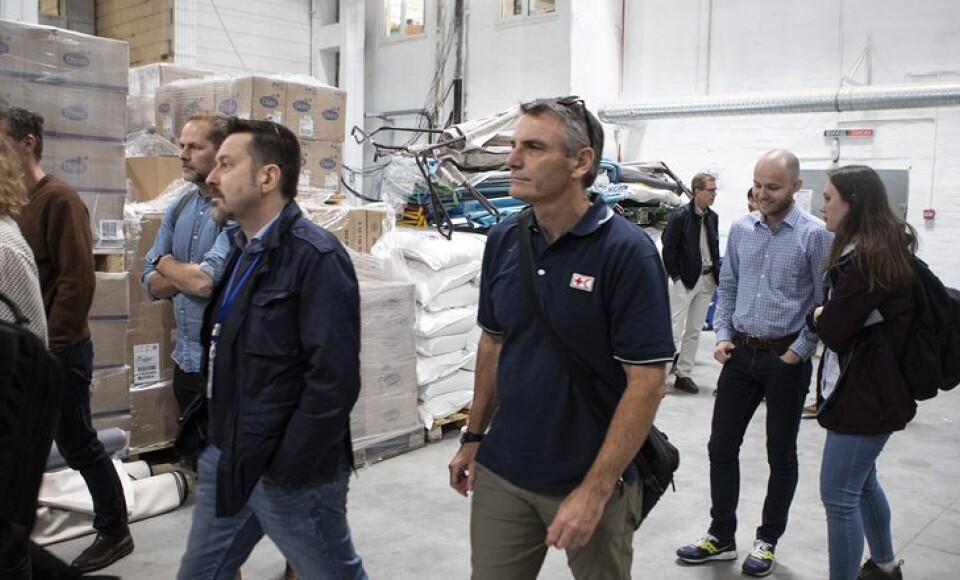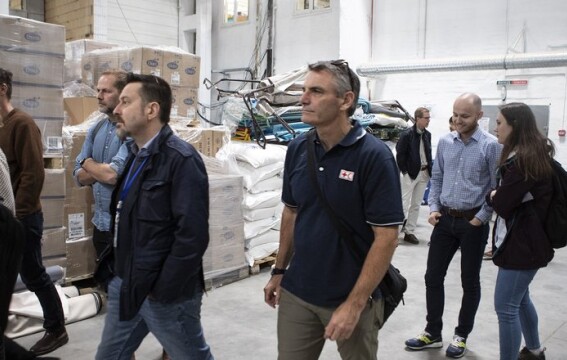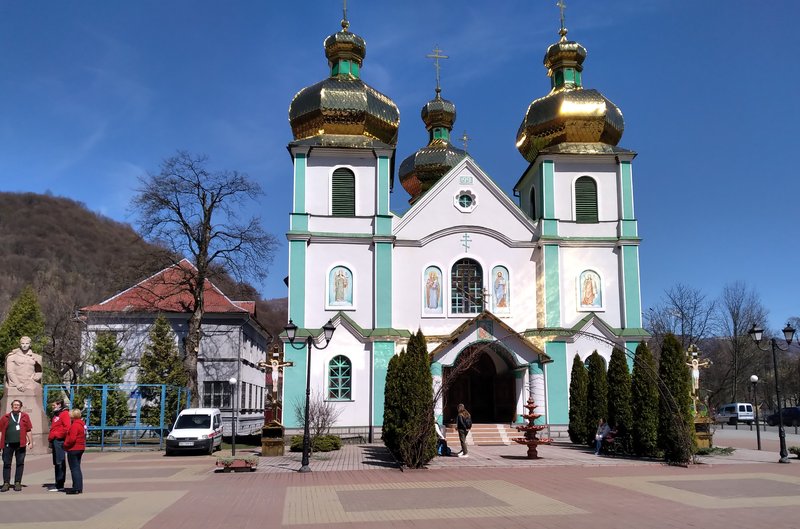International delegate returns from Ukraine
26 May 2022


New Zealand Red Cross international delegate and security expert John Dyer has just returned from a five-week deployment to Ukraine. He was based in Western Ukraine where he saw a different view of the country to what many of us understand.
John Dyer joined around 40 other Red Cross delegates from around the world in Ukraine to assist the International Federation of Red Cross and Red Crescent (IFRC) in their work supporting victims of the conflict.
John says one thing that immediately struck him, was how Western Ukraine was a different world to Eastern Ukraine — which stretches down to Mariupol and is where most of the conflict is taking place.
He says in Western Ukraine, on the surface and for the moment at least, many people are going about their daily lives as usual. Local economies continue to function and he even saw tourist groups being led around one of the cities he worked in.
“People get the impression the whole of Ukraine is in war, however the conflict to date has mainly been focused in the east. The whole country and particularly the east is undoubtedly suffering greatly, but much of Western Ukraine is still relatively secure.”
Different challenges
That’s not to say the West is unaffected — fuel is hard to come by and the millions of people who have arrived after fleeing from the east have created huge strain on facilities and services. John says the population of the small city of Uzhorod, where he stayed, had swelled from 110,000 to over 200,000 in just a few weeks.
Many people are living in temporary shelters such as schools or kindergartens, and making do. “You can imagine the size of the bathroom facilities and furniture available in a kindergarten, but these challenges are small when people are at least feeling safe.”
The Western cities have not escaped missile attacks, and John had some of his own brushes with bombs. “There were strikes the day after I left Lviv, and when in Vinnytsia we had a whole night of alarms. We heard that a number of missiles were intercepted by the Ukrainian defence systems — Vinnytsia is a big city and we were not close to likely targets if any did land so we felt ok.”
Although there have been fewer strikes in the west, the humanitarian needs are great with the millions of displaced people now living there.
From the relative safety of the west, John was able to carry out his role as IFRC security coordinator.
“I was there to develop a security framework to enable Red Cross teams to operate in as safe and secure manner as possible.”
The IFRC has been working closely with the Ukrainian Red Cross and John says it has been a privilege to support people whose own friends and families are affected by the crisis. “What I have seen the Ukrainian Red Cross doing over there is just heroic.”
Unexpected risks
John’s risk assessments showed the greatest threats to Red Cross staff and the people they were supporting were not always as one might expect in a conflict zone.
Some of the biggest safety risks were traffic accidents, which were common, missile strikes on chemical stores and the resulting contamination, and risks to staff over other’s misuse of the Red Cross symbol.
“People would tape a Red Cross to their vehicle, just to try and help them move about, but this can lead to some distrust in the emblem and as a consequence create a threat to our own staff.”
A security plan
John developed a plan to help mitigate these risks to staff, as well as the more obvious ones of missile strikes on civilian targets. The security framework was first implemented in Uzhorod, the city where John was initially working, and then developed to incorporate the wider area where the IFRCS is working in including Lviv, Vinnytsia and Chernivtsi and the Oblasts (regions) in between these cities.
John completed this work at the beginning of May and is now back in Wellington. He’s confident the framework has made a difference.
“It’s about ensuring our people can help the people in need in Ukraine in a safe way. We’ve put that plan in place and I’ve left capable people to work through it. Sadly, this is going to be a long-term operation — we will be there for some time and safety will be an ongoing issue that will need to be managed.”

John’s Red Cross colleagues outside a medical centre (beside the church) where they are planning to run a clinic for displaced people in the Western Ukraine town of Rahkiv.
